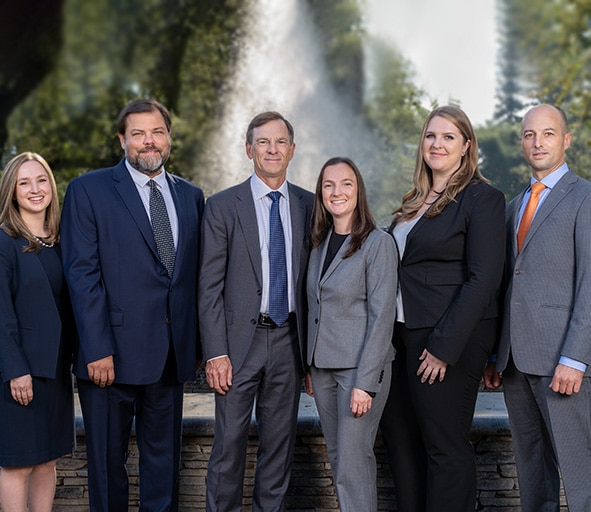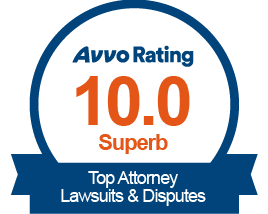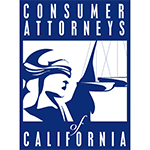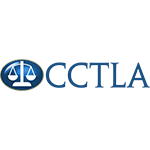Personal injury and civil justice attorney Brooks Cutter is a leading advocate for consumer justice and protecting the rights of the severely injured…
California Eminent Domain
At Cutter Law, our attorneys believe in ensuring property owners receive eminent domain just compensation when part or all of their property is taken.

Unfortunately, property owners often find themselves in a complex situation they do not fully understand when they learn their property is subject to eminent domain (also known as condemnation).
Fighting for just compensation can be a long and stressful battle, and requires representation from attorneys who are highly knowledgeable of eminent domain law.
Fighting eminent domain without legal representation can result in you being underpaid for your property.
Here are some important things to know about eminent domain in California.
Quick Links
What is Eminent Domain?
Eminent domain (or condemnation, or expropriation) refers to the power of the government at the local, state or federal levels to take private property for public use.
The government or other agencies or private corporations have the right to do so if the project benefits the public and if the owner is paid just compensation.
Here are some possible reasons why your property might be taken by eminent domain:
- Oil and gas lines
- Water lines
- Road and Highway Expansion
- Public Parks
- Public Transit (i.e. light rail, high speed rail, bus lanes, and transit stations)
- Electric, phone, and power lines
California Eminent Domain Procedures
The government or agency generally starts with a public project that it feels is necessary and searches for a location for that project. That location should be in an area that offers the greatest public good at the least private harm (or inconvenience).
Once a property is found, the agent will appraise that property to determine its fair market value. The fair market value is used to determine just compensation for the project.
The property’s owner should be notified of the appraisal ahead of time and given the opportunity to be on site when the appraiser conducts an inspection.
Ideally, at this point, the property owner will hire an attorney who can advise the property owner of their rights and responsibilities in the process.
The appraiser should be accredited and independent and can receive information about the property from the landowner. Following the inspection, the appraiser determines the fair market value of the property. The purchasing party then makes an offer on the property for no less than the amount of the appraisal.
The purchase offer must include the following:
- A statement of the property’s proposed use
- A complete description of the property being acquired
- A list of any improvements included in the offer
- The amount of the offer
- An itemized list of how they valued the property
The owner can also decide to have an independent appraisal. If the owner and the purchasing agency do not agree on a price, the owner cannot be forced to enter into the purchase agreement.
The purchasing agency is expected to make reasonable efforts to negotiate a purchase of the property but if this is not possible, it can file an eminent domain action in court or abandon its plan to acquire the property.
Once the decision to file an eminent domain action is made, the agency requests a “Resolution of Necessity.” The property owner is given the opportunity to speak to the legislative body about whether the project is necessary and whether the property is necessary for the project.
At this point, if a condemnation attorney has not previously been hired, one should be.
If the “Resolution of Necessity” is adopted, the agency can file a complaint to purchase the property in exchange for the property’s fair market value. An eminent domain trial is undertaken to determine the property’s fair market value, with anyone who has an interest in the property having the opportunity to speak.
The trial may also determine whether the agency is legally entitled to purchase the property.
If the government or agent fails to pay the compensation required, the property owner can sue to recover the just compensation. This is known as inverse condemnation.
Understanding Just Compensation and Other Damages
Determining the just compensation for condemned property is complex. The value of the property or portion of the property taken must be determined.
You may also be able to recover compensation for:
- Severance damages (damages from access impairment, loss of frontage, changes to the size and shape of the property)
- Value of improvements you’ve made to the property (fixtures, machinery and so on)
- Loss or damage to the business
- Value of leasehold interests taken
- Accrued interest
- Relocation benefits
- Professional fees (attorneys fees, litigation expenses, appraiser fees)
Determining the property’s valuation is vital to ensuring landowners receive the full amount they deserve for their property. The government and other parties using eminent domain will attempt to pay the lowest amount possible. Without adequate evidence of your property’s value and “best use” your property may be undervalued. Although “just compensation” for property subject to eminent domain is required under the constitution, there is not a precise standard for determining “just compensation.
In Sacramento S. R.R. v. Heilbron(1909) the court established how property taken through eminent domain would be valued.
“The fair market value of the property taken is the highest price on the date of valuation that would be agreed to by a seller, being willing to sell but under no particular or urgent necessity for so doing, nor obliged to sell, and a buyer, being ready, willing, and able to buy but under no particular necessity for so doing, each dealing with the other with full knowledge of all the uses and purposes for which the property is reasonably adaptable and available.”
When determining the “fair market value,” two concerns must be addressed:
- Whether the project had increased or decreased the property’s value and the value of the neighborhood around it, and
- Whether the property is currently being used for its highest and best use, and whether its current use is a result of the project.
How an eminent domain attorney can help you?
Eminent domain law is not always straightforward. There are different rules and procedures in each state, and the federal government also has its own policies and procedures.
Additionally, there are factors that can be contested. The condemning party has to show that the property is being taken for public benefit (or public use), and must provide just compensation. The landowner can recover compensation for damage done to the remaining property, as well as the loss of business or loss of use.
These issues are vital to ensuring property owners receive the full amount they are entitled to, especially because the government might not offer the full compensation a property owner deserves.
A skilled and experienced eminent domain lawyer can help you challenge the government’s right to take your property and determine what damages you should be compensated for.
At Cutter Law, we take this stress off your hands and put our full resources into fighting for you. We can help determine whether you have the right to challenge the condemnation outright or fight for full payment of your just compensation.
We can also ensure the condemning party has followed all relevant procedures in taking your property.
The government and other condemning parties usually have vast resources and years of experience using their eminent domain rights to take property. This makes it difficult to fight against them.
If your property is subject to condemnation in California, you need an experienced attorney with the skills and resources to help you launch eminent domain litigation.
Contact us today to find out how we can help you fight condemnation and eminent domain in California. 1-855-967-1635
$23.5 Million
Settlement won for government fraud in a whistleblower case against one of the world’s largest medical device manufacturers
$240 Million
Settlement in a nationwide defective medical device case involving defective pacemakers and cardiac defibrillators against Boston Scientific and Guidant
Frequently Asked Questions
What are the eminent domain restrictions?
The government can only take private property for public use and the government must offer “just compensation” for condemnation. Just compensation usually reflects fair market value of the property, but that fair market value can vary depending on the highest and best use selected for the property.
The highest or best use of a property may not be the way in which the property is currently used. The government may try to argue a much lower or more restricted “highest and best use” of a property to pay less in compensation for the condemnation.
Who can use eminent domain to take my property?
Governments, including states, counties, and cities can take your property.
Additionally, other entities that are authorized to enact condemnation of property may be able to if doing so in the public’s interest. These other entities can include transportation authorities, utilities, gas companies, and railroads.
What is just compensation?
Just compensation refers to the standard by which the landowner must be compensated for property that is taken by eminent domain.
Under the constitution, there is not a precise standard for measuring “just compensation” and, as a result, the courts apply “fair market value” to determine how much a property owner should be paid for property taken under eminent domain.
Under the California Code of Civil Procedure (1263.320), the fair market value of the property is the highest price that a seller would agree to, if the seller were willing to sell but didn’t have an urgent necessity, and a buyer, being ready, willing, and able to buy, each having full knowledge of all the possible uses and purposes for the property.
Fair market value includes consideration of two issues:
- Whether the project has increased or decreased the value of the property and its surrounding neighborhood, and
- Whether the property is currently being used for its highest and best use, and whether the current use of the property is the result of the project.
What is inverse condemnation?
Inverse condemnation refers to situations in which the property owner sues the government to either abandon the taking or force them to pay just compensation and damages for possession of the property.
This is in contrast to direct condemnation, in which the government sues the owner to take the property.
What are eminent domain severance damages?
Severance damages are damages linked to the taking of your property that restrict your use of it or its overall value beyond the amount taken.
For example, the government may take a portion of land to build a highway. Severance damages may be required to compensate the landowner for damage done to the remaining property when the highway is constructed.
Similarly, taking a portion of land may then put the land in violation of zoning laws. The owner should be compensated for this, especially if it will affect their ability to sell the property in the future.
Do I have rights regarding eminent domain?
Absolutely. You have the right to just compensation for your property and you have the right not to have your property taken except in situations involving public necessity or public use.
If you do not believe you have been offered fair compensation for your property, you have the right to refuse the government’s offer and have your case heard in court.
You also have the right to question the government’s right to take your property or the right to question whether the project could be modified to reduce its impact on you.
Additionally, you may have objections to the Resolution of Necessity, which establishes the project’s necessity and public use.
In such cases, a lawyer can help you determine if your objections are valid and what steps to take in such situations.
Can I stop the government from taking my property?
You can only stop the government from taking your property if you can prove that the government is not taking your property for public necessity or public use.
Can I fight for compensation if my property is taken?
Yes. The government has a duty and responsibility to offer just compensation for your property. If you do not believe the government’s offer is fair, you can refuse it.
If you and the government cannot agree on fair compensation for your property, you will go to court to have your arguments heard.
Can the condemnor come onto my property before taking the property?
Yes. The condemnor can come onto your property to conduct land surveys and studies. The condemnor must either have the landowner’s permission or send a certified letter requesting permission at least 15 days before the first date of the inspection.
If the landowner does not give permission, the condemnor must then send a Notice of Intent to Enter at least 15 days before the inspection.
How can I prepare for a condemnation?
Keep your property clean and well maintained, as though you were preparing to sell it. Do not sign anything unless an attorney has reviewed it.
What is the process of condemnation?
Before the government makes an offer on your property, it must obtain an appraisal that sets out the fair market value for the property. That appraisal must be given to the landowner and the government must offer the full amount of the appraisal.
The government will also send a Resolution of Necessity, which establishes the necessity of the project and its public use.
If you and the government (or authorized entity) cannot reach an agreement, the entity can file a condemnation lawsuit against you and any other affected parties.
Who determines eminent domain just compensation?
Just compensation is determined by appraisers, who may also include civil engineers and other experts. Just because they provide a report setting out just compensation does not mean you are being offered a fair amount for your property.
Appraisers may improperly undervalue the land, make mistakes, miss important information, or offer a lower amount than you are entitled to.
If you and the government cannot agree on just compensation, you have the right to have your case heard by a jury in your city or county.
Do I have to accept the government’s first offer?
No. You have the right to refuse any offers the government makes and to demand just compensation for your property.
You also have the right to severance damages and, where necessary, relocation costs. The government may undervalue your property, so you may have to fight to receive the amount you are entitled to.
If you believe the amount the government offers is too low for your property, you have the right to have your case heard in court.
Why do I need a lawyer to represent me in a condemnation case?
You might assume the government will treat you fairly or give you a reasonable offer for your property or real estate.
The government does have a duty to provide fair compensation for condemnation but it may not know the highest and best use of your land, or it may overlook important information affecting the value of your property.
When you and the government cannot agree on a fair amount for your property, you have to prove that the amount you are requesting is fair. You may have to hire appraisers to value your property and experts to show how the condemnation restricts your use of the remaining property and decreases future property values.
You may also have to show how the eminent domain acquisition puts your property outside of zoning ordinances (such as lot coverage ratios). These issues are known as severance and the government may undervalue those as well.
Additionally, an experienced lawyer can help you determine if the entity has the right to take your property or if the project can be modified to limit its impact on you, can fight against any prejudgment possession of your property, and can represent you if your claim goes to a trial.
A lawyer knows how to build a solid claim that ensures you maximize the compensation you receive for condemnation. Experienced lawyers know the laws surrounding eminent domain and work with experts to ensure your claim is thorough.
Can they take part of my property instead of the entire lot?
Yes. In fact, the government is only allowed to take as much of your property as it needs for public necessity or public use. It is not allowed to take more than necessary.
That said, if the government takes a portion of your property but its actions affect your use of the whole property—or the property’s value—the government must compensate you accordingly.
What if there are many people facing the same issue?
In some scenarios, many people are affected by the same eminent domain situation. This can happen if the government takes property from multiple landowners for a highway or for power lines, for example.
In such cases, if multiple landowners feel they are being treated unfairly, it can help to join together to fight the government. You may be able to share the costs of hiring appraisers or experts to support your claim.
Testimonials

This is a high quality Law firm. This firm is top of the line and present information clearly and concisely. Read More
This is a family owned business and extremely friendly. The whole crew is very profession and reputable. They are highly knowledgeable in their trade and bring a top level of expertise to any inquiry. I would highly recommend this Law firm. These are wonderful people and they will help you get the justice you deserve.

My experience with Cutter Law has been extremely positive. Read More
The staff are professional, responsive, and passionate about their clients. Highly recommend this law firm.

Cutter Law is the one to call for sound legal advise and the firm to rely upon for solid support. Read More
There's this thing about lawyers ... they often forget the first word in their title, Counselor at Law. Well, Margo Cutter practices the full spectrum of her profession. Though she has not represented me in litigation, I have benefited from her kind support and sound counsel regarding a traumatic injury I sustained due the negligence of others and the subsequent unbearable pursuit for justice. Thank you, Margo.

I had the pleasure of working with the Cutter Law P.C firm recently and it was a very positive experience. Read More
Their people were professional, thorough, and expressed true consideration in their deliverance. I highly recommend them to anyone.

If aggressive, smart attorneys are what you need then look no further. Read More
CL took on my personal injury injury case without me needing to put in a retainer fee all while making sure I was prepared and on time for my court dates. You can always try submitting a case evaluation to see if they are the right attorneys for you before committing.
Previous
Next
- by Brooks Cutter
- on
Schedule A Free Case Review
Our Office Locations
Sacramento Office
401 Watt Avenue Suite 100
Sacramento, CA 95864
Phone: 916-290-9400
Oakland Office
Cutter Law P.C.
1999 Harrison Street Suite 1400
Oakland, CA 94612









